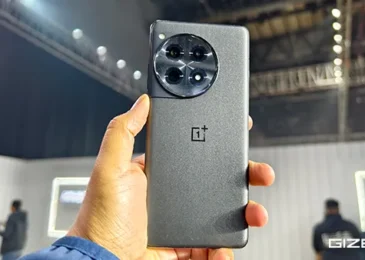Owning a laptop is typically a wonderful thing. You can take it with you to have desktop-level computing power in something you can carry with you and set up anywhere you need, meaning you can work from your own kitchen table or a diner on the side of the road a thousand miles from home. Even if you don’t move the laptop all that much, the smaller size of it can make it a spartan element to a tight working space in your home or office area.
For all the convenience though, if you’ve had your laptop for more than two years, you might start wondering if it’s time to up your game. That leads to the question of whether or not you should upgrade it or replace it. While looking over replacement possibilities and reviews of newer models is always a good idea, it’s not a good idea to throw your old laptop out yet. Depending on what particular parts of it aren’t really working for you anymore, a precision upgrade might just buy you more time with your current model. Having said that, laptops aren’t always as easy to upgrade as desktops are.
Will An Upgrade Solve Your Issue?
If you just have sluggish overall performance or you’re short on storage, then a hard drive or RAM upgrade might just fix you up for another year or two. On the other hand, if you can’t play videos or run games you like, you might need a more powerful graphics card. That’s not something you can upgrade in most laptops.
Can You Do The Upgrade Yourself
Swapping out some parts for altera fpga board is as simple as playing with Legos. If you don’t know how to do it though, then you have to factor in labor charges.
The Budget Often Renders The Final Verdict
A new laptop can cost you hundreds, but individual parts are often cheaper on their own. A new battery might be as little as $25 after shipping, and you can sometimes upgrade your RAM for just twice that. A new hard drive might go for just a little more, but an SSD drive might cost more than a laptop, and a Blu-ray drive for a laptop can be cheap for read-only or hundreds for a burner.
Your Battery Is Your Life
The more a laptop is used, the more the capacity of your battery will drop. Eventually, it’ll give you less than an hour of life, meaning you need a plug, just like a desktop. Fortunately, batteries are typically accessible without opening the actual case. You can return yourself to original capacity, get something with more capacity, or just get something physically lighter so you don’t have as much to lug around.
Your RAM Is Your Muscle
Many people think of the processor in terms of the speed of a computer or laptop, but the amount of RAM you have also matters. More RAM makes it easier to run multiple programs or truly labor intensive apps like photo and video editing. It’s an easy upgrade in most desktops, but not so much in laptops, as keyboard removal is necessary. First check online to see how much RAM your laptop currently has and what can be added or if your current chips have to be removed in order to make room for upgrades. Also, consider if you even need more RAM. If you just type and browse online, 2 gigs or more is fine. If you multitask and consider yourself a power user, then you need 4 gigs or more.
Do You Need More File Storage Space
Swapping out your hard drive for something with more room or even a faster SSD is usually a simple DIY project. Just back up all your data and get a screwdriver. SSDs do cost a lot more per gigabyte, but the speed increases are simply phenomenal. Don’t throw out your old drive if it still works though; you might be able to put it into an external enclosure and make it a system backup device.
Do You Still Need An Optical Drive
There was a time where laptops commonly had modular optical drives, but that has largely passed. However, if your laptop has one, you are faced with two choices. First, you might be able to locate a Blu-ray drive compatible enough to replace your older DVD burner, or you can even expand the storage capacity with an SSD or extra hard drive. The price tag can run all over the place for this, depending on parts and labor, if you can’t do the work yourself. For that matter, an external drive might make a good stopgap.
A New Display, Touchpad, Or Keyboard
These parts are replaceable, but aftermarket options rarely prove to be upgrades. So, while you might extend the lifespan of your laptop, you’re not getting an upgrade here. If you have a high-end gaming laptop that still rocks it hard otherwise, it might be worth salvaging, but most economic or general laptops might be better off replaced once you factor in the high price tag of switching out such an integrated part.
Is The Processor Or Motherboard The Issue
Advanced users can swap out one or both in many desktops, but it’s far more difficult in laptops. In fact, it’s rarely worth it and not always possible. If your issue is either of these or both, just buy a new laptop.
In The End, A Decision Must Be Made
Unlike their desktop tower brethren, which often have tremendous flexibility, adaptability, and space for adding and swapping individual components, laptops are typically not upgrade-friendly. Laptops are honestly designed to last only a few years, and while some new storage or RAM might extend the useful lifespan of yours, you’re still going to be behind modern systems and market standards sooner rather than later. If you want to maximize your budget and get the most from your laptop, start your upgrades as soon as you can and stick it out with your system for however long it suits your needs. However, once it begins being too slow, weak, or old, it’s typically better, simpler, and cheaper over time to just replace it outright to keep up with the brutal pace technology typically runs at.






